At Rayonier, we spend our careers growing trees to provide the lumber future generations will need. Now we’re celebrating the end result, seeking some of the best wooden DIY projects out there. We started with our own employees, holding the first-ever Rayonier DIY Contest. Today, we feature the work of Robert Hall, our IT Manager of Real Estate and Marketing Systems.
Robert Hall’s favorite DIY wood projects combine dark woods like cherry with layers of navy, sea blue and white epoxy. It’s not only beautiful but could also serve as an artistic symbol of his woodworking roots.
The son of a minister who also was one of the first Habitat for Humanity employees, Robert has been honing his craft since his childhood days spent in the mountains of Western North Carolina. Now a resident of Florida, his projects seem to reflect the unique characteristics of the two regions, forest and sea.
It all began in Grandpa’s workshop
“My grandfather was the woodworker and he really enjoyed doing it. He worked for Oland in Brevard, North Carolina, in the pulp and paper industry, so that was neat to do the same when I came to Rayonier.”
Among his grandfather’s many woodworking projects included crafting all the gavels used by the town’s judges.
“That’s where I got my love of woodworking, from going down to my grandfather’s basement. It was good male bonding time if you will, with my grandfather and my father.”
As fate would have it, Robert wound up inheriting a 40+ year-old cut of cherry wood found in his grandfather’s attic after he died, which he used to create a wood/epoxy river desk (pictured below).
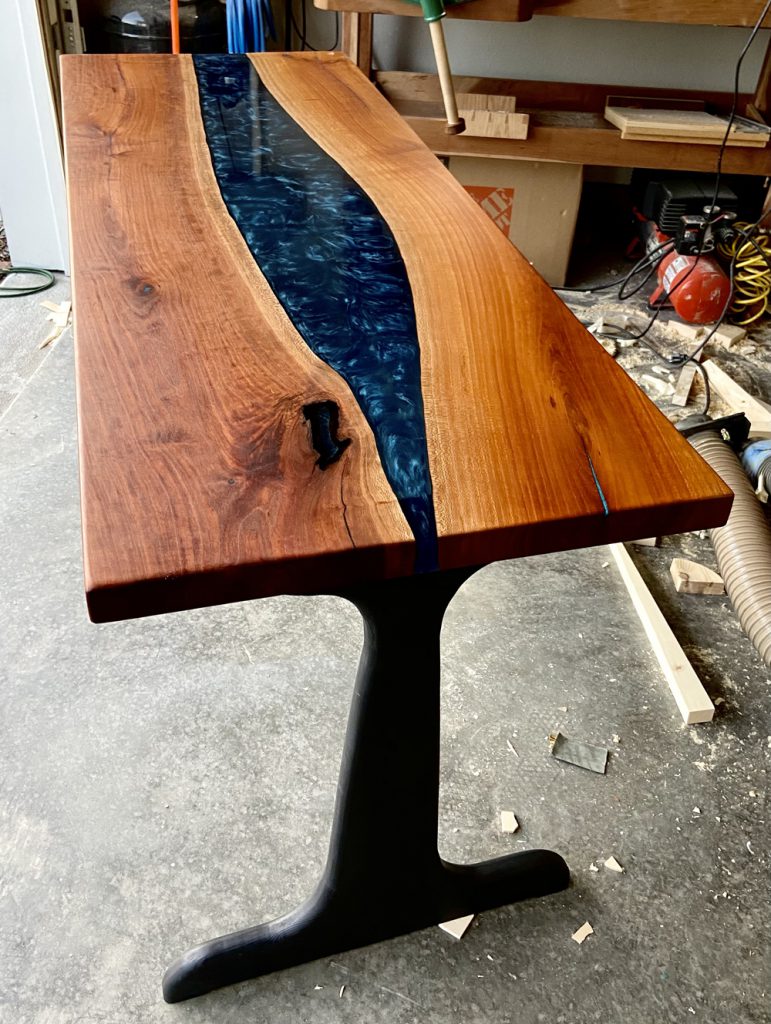
Robert’s family history as Habitat for Humanity trailblazers
Robert’s building skills were enhanced by his family’s involvement in the early days of Habitat for Humanity.
“I would say my dad was the glue that held Habitat together for a while. He was a Baptist minister who took a pay cut to work for the non-profit and acted as a calming force for the early leadership, reminding them that what they were doing was the Lord’s work and we needed to make this happen. So I did a lot of work in the photography lab but also working on the houses and that kind of stuff.”
The story behind Robert’s prize-winning charcuterie boards
Robert made charcuterie boards out of cherry wood procured from unwanted fallen trees.
“My ex-wife’s father had a cherry tree fall on his property from a neighbor’s. It was a vacant lot and a bad storm had come through, so he called the neighbor up and offered to take care of it, and the neighbor agreed he could have the wood. So we cut it up and had it milled. I took the majority of it.”
Two layers of epoxy were used to create an ocean effect on the wood. Each board is unique, with the cracks and knots giving them character. They were finished with a food safe oil and a coat of wax.
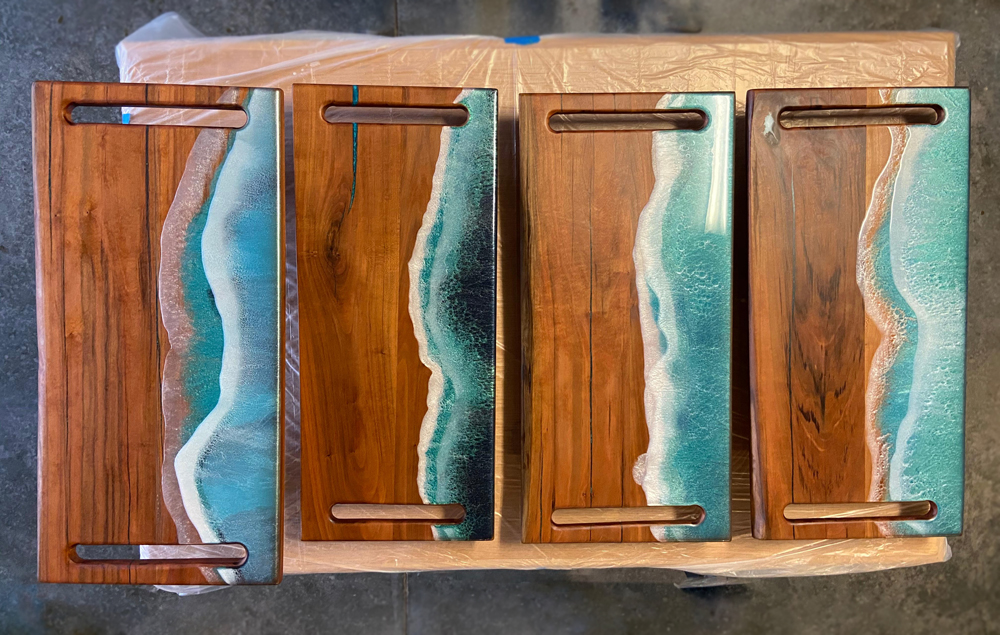
How Hand Tools Give This Craftsman His Edge
One thing that intimidates many aspiring woodworkers is the thought of investing in expensive power tools. However, for Robert it’s the hand tools he’s come to enjoy most.
“I use machines, but I do mostly hand tool work now. And part of the reason is to slow me down and to really feel the wood and know what’s going on. You get more connected to the piece than if you were just running it through machines.
“Even the act of sharpening the blade to prepare for the cutting of the wood is part of that whole process of sharpening my edge—not just the tool’s edge, my edge too. Really getting in there and making sure everything is just right. That ‘zing’ you feel when you run the tool over the wood…it’s so wonderful.”
Woodworking offers Robert relaxation, creative space, and the opportunity to share his love of the craft
When asked about the biggest benefits he gets from woodworking, his response was three-fold:
“The relaxation I get from it is obviously great. But I think for me, just being able to create something with my hands is just so rewarding. And I really love when other people take it, and I know they are using it in their life. I don’t keep a lot of pieces I make, I like to give them away.”
To illustrate the point, Robert described a piece he hand-made for a friend, which is one of his favorite projects to date.
“Like the table with the crosses on it (pictured below). There was so much that went into building that piece and it was literally done all by hand with no power tools. Everything was cut with a hand tool: embedding the crosses, the dovetails on the drawers, the pull for the handle for the drawer, absolutely everything was done by hand. And it is still in a good friend’s home, and just to know it’s in her house and she gets joy from it is so rewarding to me.”
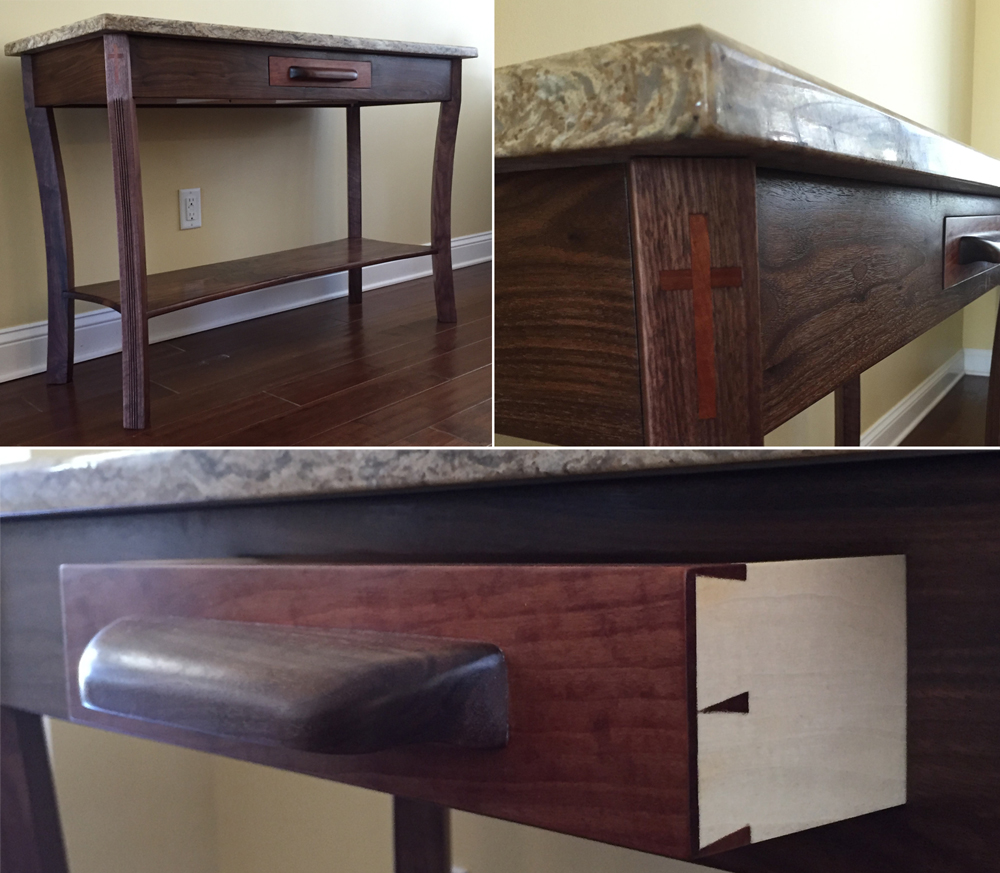
Robert’s Advice for Aspiring Woodworkers: Keep it Simple and Learn from Others
On tools: “I have accumulated a lot of tools over the years but I still come back to just a handful I use most of the time. For me, it would be a # 4 1/2 plane, a good saw, and most importantly a good bench and good vice, and that’s really all you need to get started.”
Robert also suggests using other people’s creative ideas for inspiration to create your own designs.
“To give an example, that kerfing plane (pictured below) came from Tom Fidgen, but I made it my own using my grandfather’s piece of wood, and I added some other things in terms of design.
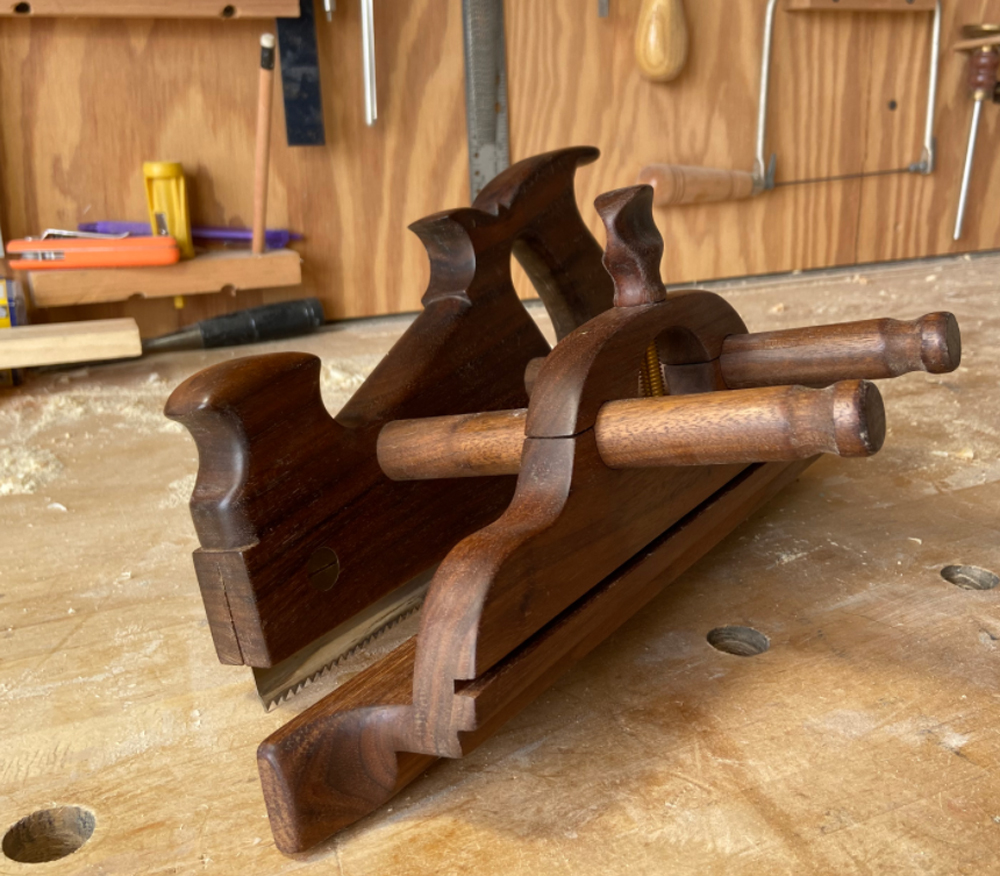
“And don’t be afraid to fail! You have to waste wood to make something beautiful. There will be waste that comes off of that wood but you’re getting rid of what you don’t need to really show the beauty.”
Robert also heartily recommends the books and classes on woodworking with hand tools from Tom Fidgen’s The Unplugged Workshop.
On behalf of the entire Rayonier team, congratulations to Robert. He won the Small Indoor category in our employee DIY Contest!
You can read more of our DIY stories featuring talented woodworkers here.



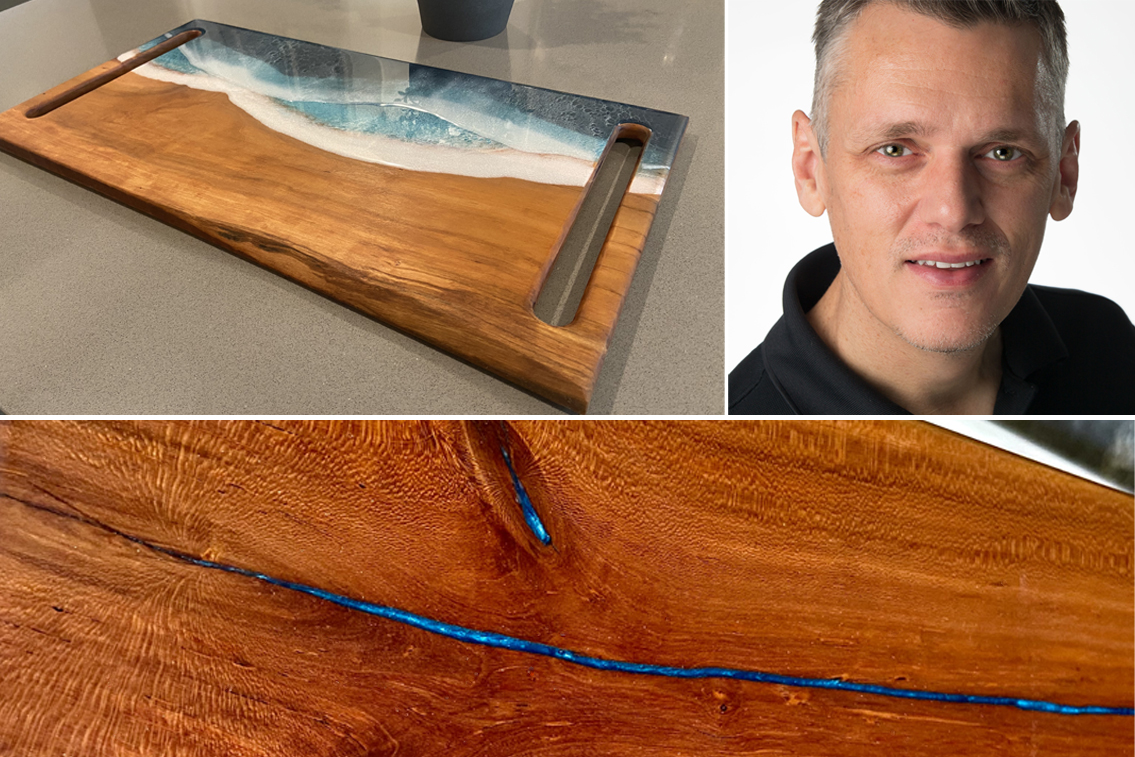


Leave a Comment